You can lock your screen to protect your PC from unauthorized use when you walk away for a short time and do not want to sign out from your user session or turn off your computer. In Windows 10, there are several ways to lock your PC. In this article, we'll review all of them.
Advertisеment
When Windows 10 is locked, it shows the lock screen.
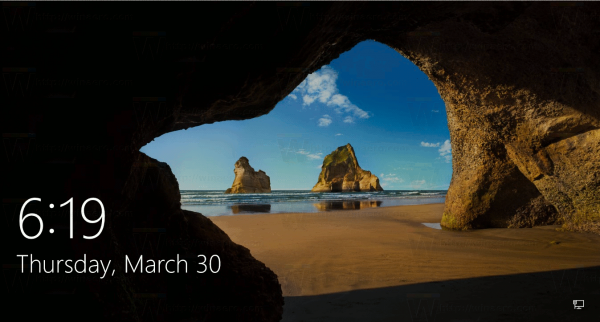
If you have disabled the lock screen, then a sign-in screen will be displayed instead.
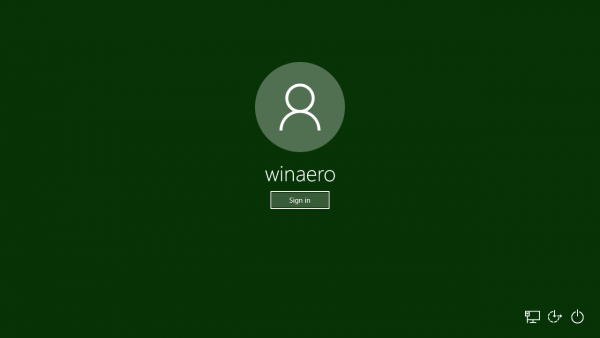
If a CTRL+ALT+DEL security screen is enabled, the user must press Ctrl + Alt + Del before signing in to unlock it.
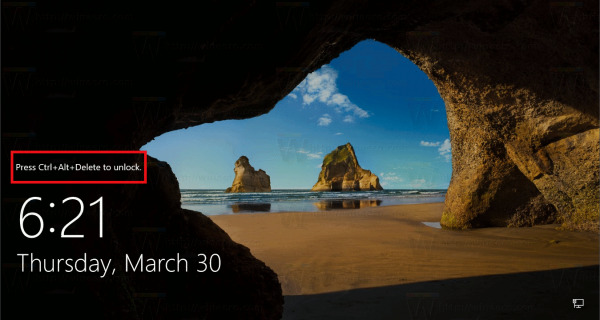
When your account is password protected, other users won't be able to unlock your user session without knowing your password. However, if they have their own accounts on your PC, they will be able to sign in with them from the lock screen. Your account will remain locked and your data will stay private.
To lock the screen in Windows 10 from unauthorized use (lock your computer), you can use one of the following methods.
Lock your computer with a keyboard shortcut.
To lock your user session, press the following key sequence on the keyboard:
Win + L
This will lock your screen.
Alternatively, you can press Ctrl + Alt + Del. A special security screen will appear. There, click the Lock item.
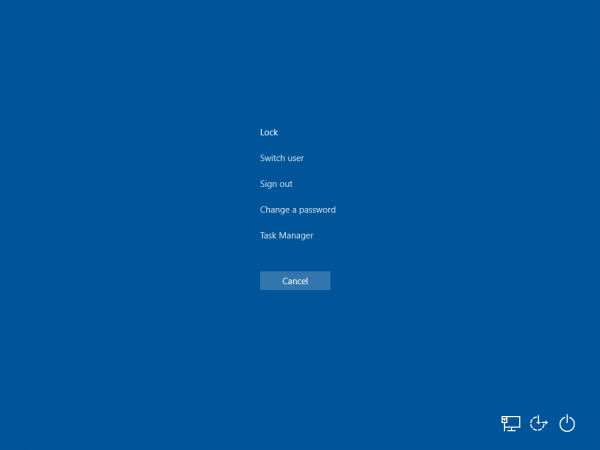
Lock your computer from the user icon in Start.
Open the Start menu and click the user account picture. A small menu will appear. There, you'll find the Lock command.
This trick also works with the full-screen Start menu.
![]()
Lock your computer from Task Manager.
Open Task Manager and go to the Users tab. Find your user account in the list. Select it in the list and click on the button "Disconnect". This will lock your current session.
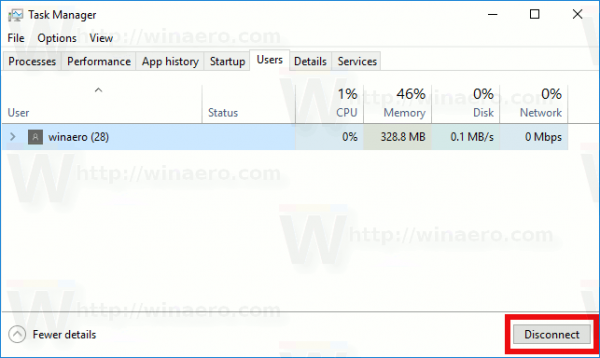
Alternatively, you can right-click your account in the list and select the same command from the context menu. See the screenshot below.
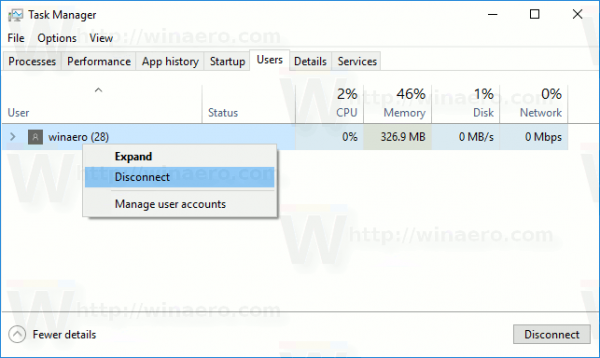
Lock your computer with a command.
Finally, you can lock your screen with a special command. Press Win + R shortcut keys to open the Run dialog and type or paste the following command:
rundll32.exe user32.dll,LockWorkStation
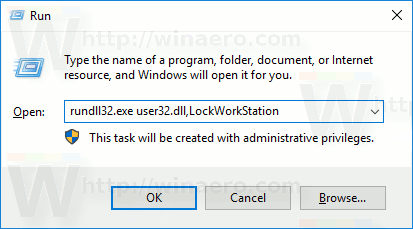
Alternative, you can execute this command at a command prompt.

In Windows 10, there are a number of other useful commands which will allow you to restart, shutdown or hibernate your PC.
See the article Create Shutdown, Restart, Hibernate and Sleep Shortcuts in Windows 10.
Tip: Starting with Windows 10 Creators Update, you can use a new feature called Dynamic Lock to lock your computer automatically.
Support us
Winaero greatly relies on your support. You can help the site keep bringing you interesting and useful content and software by using these options:
